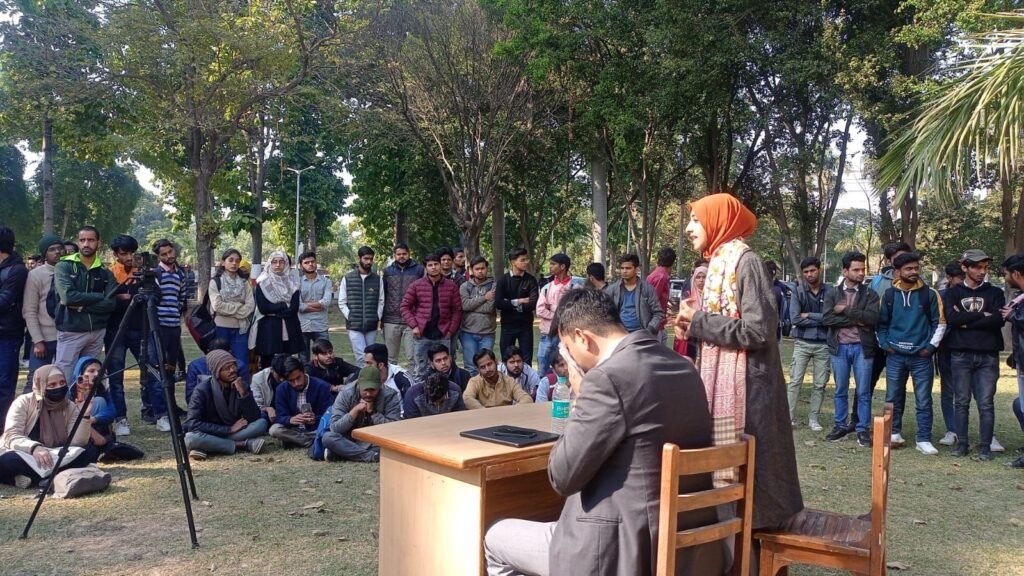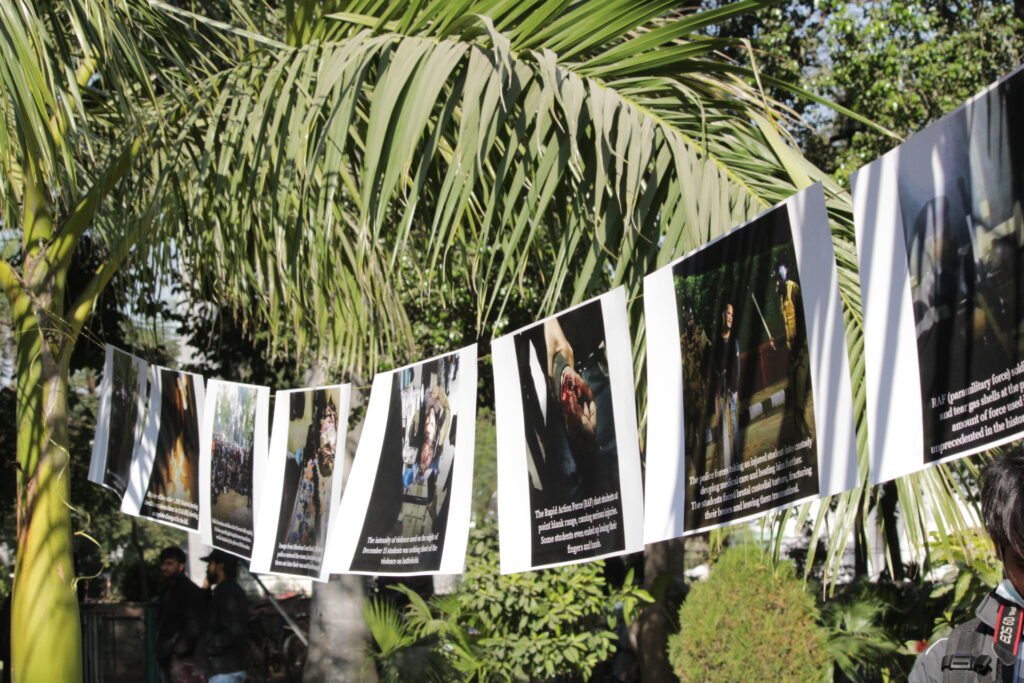In December 2019, both campuses witnessed and faced the brutal state-sanctioned attack on students who were protesting against the proposed ‘partial’ and ‘unconstitutional’ Citizenship Amendment Act
Jibraan Uddin | Clarion India
NEW DELHI - Hundreds of Aligarh Muslim University (AMU) and Jamia Millia Islamia (JMI) students on Thursday commemorated the third year of the brutal police attacks on the student community during the nationwide protests against the Citizenship Amendment Act (CAA).
Students, under the banners of different organizations, gathered on their respective campuses to mark the day.
On December 15 in 2019, both campuses witnessed and faced the brutal state-sanctioned attack on students who were protesting against the proposed ‘partial’ and ‘unconstitutional’ act.
Police attacks resulted in hundreds of students getting injured. Reportedly, FIRs were filed against 52 named students. Besides, hundreds of unnamed students were also booked under various sections of IPC. Many students were also arrested.
Students at Aligarh Muslim University on Thursday gathered to remember the atrocities perpetrated against them and the varsity by the Uttar Pradesh police.
A discussion on the topic ‘relevance of universities in shaping public opinion post-2019’ was organized by the students.
The student gathering was addressed by two alumni of the university, Asif Mujtaba, an activist and a social worker who is extensively working around rebuilding the lives of the victims of Northeast Delhi and Ghazala Ahmad, a Muslim journalist tracing hate crimes, communal violence and discrimination against Muslims in India.

Addressing the students, Asif Mujtaba elaborated on the role of the state before and after 2019 and explained how the brutalities unleashed on the Muslim community were not something that started after 2014.
Ghazala Ahmad shared her experience of reporting from the areas hit by communal violence. She recounts how her identity of being a visible Muslim journalist comes as a challenge every time she was on the field to cover stories and how she deals with it to tell stories to bring ‘truth to power’.
She said, “No one will tell your stories, you must do it yourself. We should keep revisiting the history of resistance and valour exhibited by our community so that our coming generations can seek strength and lessons from it”.
One of the organizers of the event, remembering the 2019 violence on the campus, said: “Memory is one of the tools of the oppressed and we shall keep the 15th December 2019 memory alive and fresh in our minds”.
Later, in the evening, a group of students carried out a candlelight march at the iconic university gate, Bab-e-Syed, in memory of the students and people who lost their lives and incurred severe losses in defending their rights as citizens of this country while protesting against CAA.

A protest was also organized by students at Jamia Millia Islamia. The protest was joined by several student bodies to recount the brutal action by Delhi Police on them.
Megha Sharma, a student of JMI at the protest, said, “Even after three years of state-sponsored terror on the campus, the fear, despondency, and displeasure are still alive and visible among the students. The incident of state’s and administration’s betrayal is still stark among the students.”
“The entire day students seemed so full of grief and dismay; everyone was talking about the incident that happened three years ago, students were scared to go to the library, remembering the atrocities that were unleashed upon them there.”
Hilal Sheikh, another Jamia student, recalled that three years ago he was sitting with some of his friends in the library and saw police entering the reading room and started assaulting the students. “We were not even in protest, we were studying, yet we were beaten”.
He said, “We should never forget how we were treated by the state and the university administration. If we don’t raise our voice, it will be repeated in different forms and ways.”

